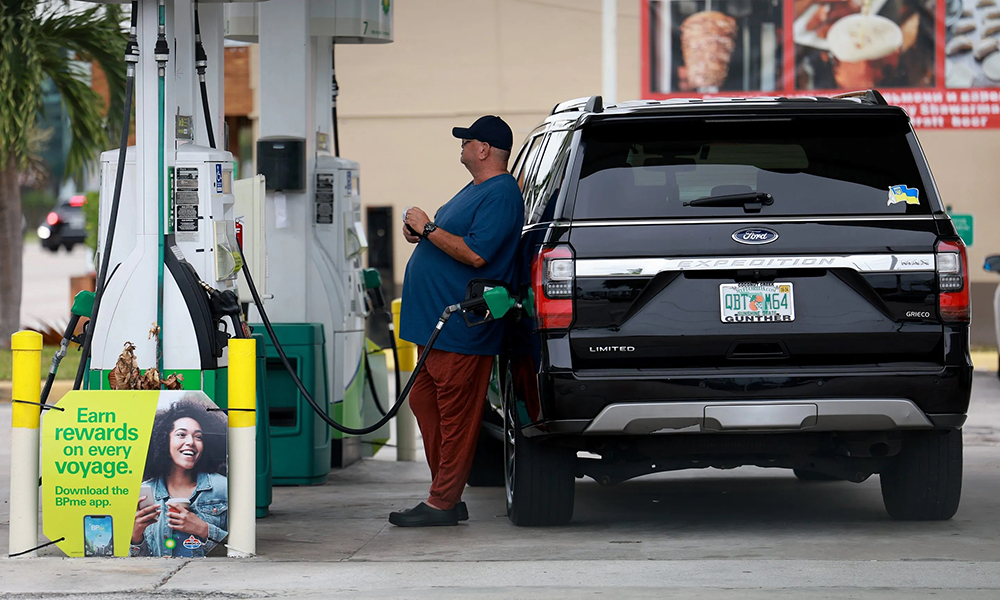
頑固的通脹,、不斷增長的物價(jià)、更加緊張的預(yù)算,,這些詞語真實(shí)地反映了美國消費(fèi)者過去幾年中所面臨的經(jīng)濟(jì)格局,。然而事實(shí)證明,盡管遭遇經(jīng)濟(jì)逆風(fēng),,美國消費(fèi)者依然韌性十足,。為了適應(yīng)這種格局,,他們改變了自身的消費(fèi)重心,做出了取舍,,而且有些人還調(diào)整了生活方式,。正因?yàn)槿绱?,美國消費(fèi)者成功地度過了這段通脹時(shí)期,并依然認(rèn)為未來可期,。
美聯(lián)儲(Federal Reserve)如今已經(jīng)拉開了外界所預(yù)期的系列降息舉措序幕,,并以此為美國消費(fèi)者開啟了新的經(jīng)濟(jì)格局,。為了更好地支持客戶,,幫助他們應(yīng)對未來動態(tài),,金融服務(wù)提供商應(yīng)評估其當(dāng)前的產(chǎn)品服務(wù),,以確保它們能夠滿足客戶不斷變化的需求。要做到這一點(diǎn),,金融服務(wù)提供商就必須了解美國消費(fèi)者在應(yīng)對近期財(cái)務(wù)挑戰(zhàn)時(shí)都采取了哪些舉措,。
開支削減與取舍
桑坦德銀行美國分行(Santander U.S.)跟蹤了美國中等收入家庭18個(gè)月的花銷行為,。其調(diào)查顯示,美國消費(fèi)者正在通過做出必要的取舍來應(yīng)對當(dāng)前的經(jīng)濟(jì)形勢,。
為了應(yīng)對通脹,,美國消費(fèi)者重新制作了預(yù)算,。例如,,90%的消費(fèi)者稱自己削減了某些領(lǐng)域的開支,,64%的消費(fèi)者稱對預(yù)算進(jìn)行了大幅削減,,以避免累及其積蓄,。值得注意的是,,為了應(yīng)對日益上漲的日用品和燃油價(jià)格,,美國很大一部分中等收入人群據(jù)稱取消了在某些領(lǐng)域的開支,,例如度假,、外出就餐和娛樂等。
他們還推遲了大件購買計(jì)劃,。例如,超過半數(shù)的中等收入家庭在去年擱置了汽車購買計(jì)劃,。通過做出這些犧牲,,很多消費(fèi)者在努力實(shí)現(xiàn)其長期財(cái)務(wù)目標(biāo)的同時(shí)實(shí)現(xiàn)了收支平衡,。80%的中等收入家庭仍能按時(shí)償還賬單,,72%的家庭表示已步入財(cái)務(wù)成功的正軌,,而實(shí)現(xiàn)財(cái)務(wù)成功指的是在不做出巨大犧牲的情況下有能力負(fù)擔(dān)生活開支,應(yīng)對緊急情況,,并追求人生目標(biāo),。
不斷變化的消費(fèi)觀念和重點(diǎn)
隨著消費(fèi)習(xí)慣的轉(zhuǎn)變,消費(fèi)者的偏好和觀念也發(fā)生了改變,。美國家庭對財(cái)務(wù)成功的看法正在發(fā)生顛覆式的變化,。數(shù)代美國民眾眼中傳統(tǒng)的財(cái)務(wù)成功標(biāo)簽,,例如買房,,已經(jīng)不再像以前那樣是其關(guān)注的重點(diǎn),。由于房價(jià)的持續(xù)飆升,,大多數(shù)美國中等收入人群不再將買房看作是通往財(cái)務(wù)成功的必經(jīng)之路,。相反的是,,他們覺得租房對于大多數(shù)家庭來說是一個(gè)更加現(xiàn)實(shí)的替代方案,。當(dāng)前的消費(fèi)者更看重承擔(dān)能力而不是房產(chǎn),。與買房這個(gè)傳統(tǒng)的“美國夢”相比,,60%的消費(fèi)者認(rèn)為有一個(gè)在自身承擔(dān)范圍之內(nèi)的住宅,,哪怕是租的,對于實(shí)現(xiàn)財(cái)務(wù)成功來說更為重要。
隨著消費(fèi)者對購房關(guān)注度的下降,,很多消費(fèi)者更加重視維持車輛開銷,因?yàn)槠噷τ谏习嗤ㄇ谝约矮@取更多的就業(yè)機(jī)會來說至關(guān)重要,。美國中等收入人群基本上沒有別的通勤方式,,有75%的人群稱,車輛的缺失將影響其經(jīng)濟(jì)狀況,;有70%的人群表示,他們愿意犧牲其他的預(yù)算項(xiàng)目來維持其車輛開銷。
隨著消費(fèi)者行為和態(tài)度的改變,,桑坦德銀行也調(diào)整了自身的產(chǎn)品和服務(wù)以滿足消費(fèi)者當(dāng)前的需求,。近些年來,,我們已經(jīng)退出了零售抵押市場,,同時(shí)將重心放在了多單元住宅貸款業(yè)務(wù),以提供更多的房產(chǎn)選項(xiàng),,滿足消費(fèi)者的需求,。與黑石集團(tuán)(Blackstone)一樣,,桑坦德銀行獲選與聯(lián)邦存款保險(xiǎn)公司(Federal Deposit Insurance Corporation)成立合資企業(yè),為房租管制和房租穩(wěn)定型多單元住房貸款提供關(guān)鍵融資和服務(wù)支持,,這些貸款均屬于已破產(chǎn)的簽名銀行(Signature Bank)的資產(chǎn)組合。
有鑒于車輛對美國家庭的重要性,,桑坦德銀行將繼續(xù)拓展公司的汽車借貸業(yè)務(wù),,以確保能夠?yàn)楦黝惪蛻籼峁┢渌璧钠嚾谫Y,包括首次購車客戶,、信用有瑕疵的客戶以及優(yōu)質(zhì)借貸客戶,。在這一過程中,我們將與美國第一資本金融銀行(Capital One)這類服務(wù)于信貸領(lǐng)域各類客戶的全國性銀行開展合作,。
下一個(gè)周期
因此,,接下來將何去何從?美聯(lián)儲的此次降息有望拉開其系列降息舉措的序幕,,亦是在告知世人其期待已久的通脹降溫終于來臨,。盡管物價(jià)企穩(wěn)是一個(gè)可喜的信號,,但它對于消費(fèi)者來說并非是終點(diǎn),而是新階段的起點(diǎn),。
很多消費(fèi)者推遲了大件購買計(jì)劃,,因?yàn)樵撚?jì)劃需要融資助力;很多消費(fèi)者錯(cuò)過了提升其儲蓄的機(jī)會,,因?yàn)樗麄冃枰唵?、可及的各類方案來幫助他們?shí)現(xiàn)其目標(biāo)。
過去幾年告訴我們,,無論形勢如何變化,,消費(fèi)者都會付諸行動并堅(jiān)韌地去面對。那些能夠根據(jù)消費(fèi)者不斷變化的需求和喜好進(jìn)行調(diào)整的金融服務(wù)提供商,,將成為他們實(shí)現(xiàn)其財(cái)務(wù)成功目標(biāo)和愿景的關(guān)鍵合作伙伴,。(財(cái)富中文網(wǎng))
蒂姆·溫恩斯是桑坦德銀行美國分行首席執(zhí)行官。
Fortune.com上評論文章中表達(dá)的觀點(diǎn)僅代表作者個(gè)人觀點(diǎn),,并不代表《財(cái)富》雜志的觀點(diǎn)和立場,。
譯者:馮豐
審校:夏林
頑固的通脹、不斷增長的物價(jià),、更加緊張的預(yù)算,,這些詞語真實(shí)地反映了美國消費(fèi)者過去幾年中所面臨的經(jīng)濟(jì)格局。然而事實(shí)證明,,盡管遭遇經(jīng)濟(jì)逆風(fēng),,美國消費(fèi)者依然韌性十足。為了適應(yīng)這種格局,,他們改變了自身的消費(fèi)重心,,做出了取舍,而且有些人還調(diào)整了生活方式,。正因?yàn)槿绱?,美國消費(fèi)者成功地度過了這段通脹時(shí)期,并依然認(rèn)為未來可期,。
美聯(lián)儲(Federal Reserve)如今已經(jīng)拉開了外界所預(yù)期的系列降息舉措序幕,,并以此為美國消費(fèi)者開啟了新的經(jīng)濟(jì)格局。為了更好地支持客戶,,幫助他們應(yīng)對未來動態(tài),,金融服務(wù)提供商應(yīng)評估其當(dāng)前的產(chǎn)品服務(wù),以確保它們能夠滿足客戶不斷變化的需求,。要做到這一點(diǎn),,金融服務(wù)提供商就必須了解美國消費(fèi)者在應(yīng)對近期財(cái)務(wù)挑戰(zhàn)時(shí)都采取了哪些舉措。
開支削減與取舍
桑坦德銀行美國分行(Santander U.S.)跟蹤了美國中等收入家庭18個(gè)月的花銷行為,。其調(diào)查顯示,,美國消費(fèi)者正在通過做出必要的取舍來應(yīng)對當(dāng)前的經(jīng)濟(jì)形勢,。
為了應(yīng)對通脹,美國消費(fèi)者重新制作了預(yù)算,。例如,,90%的消費(fèi)者稱自己削減了某些領(lǐng)域的開支,64%的消費(fèi)者稱對預(yù)算進(jìn)行了大幅削減,,以避免累及其積蓄,。值得注意的是,為了應(yīng)對日益上漲的日用品和燃油價(jià)格,,美國很大一部分中等收入人群據(jù)稱取消了在某些領(lǐng)域的開支,,例如度假、外出就餐和娛樂等,。
他們還推遲了大件購買計(jì)劃,。例如,超過半數(shù)的中等收入家庭在去年擱置了汽車購買計(jì)劃,。通過做出這些犧牲,,很多消費(fèi)者在努力實(shí)現(xiàn)其長期財(cái)務(wù)目標(biāo)的同時(shí)實(shí)現(xiàn)了收支平衡。80%的中等收入家庭仍能按時(shí)償還賬單,,72%的家庭表示已步入財(cái)務(wù)成功的正軌,,而實(shí)現(xiàn)財(cái)務(wù)成功指的是在不做出巨大犧牲的情況下有能力負(fù)擔(dān)生活開支,應(yīng)對緊急情況,,并追求人生目標(biāo),。
不斷變化的消費(fèi)觀念和重點(diǎn)
隨著消費(fèi)習(xí)慣的轉(zhuǎn)變,消費(fèi)者的偏好和觀念也發(fā)生了改變,。美國家庭對財(cái)務(wù)成功的看法正在發(fā)生顛覆式的變化,。數(shù)代美國民眾眼中傳統(tǒng)的財(cái)務(wù)成功標(biāo)簽,例如買房,,已經(jīng)不再像以前那樣是其關(guān)注的重點(diǎn),。由于房價(jià)的持續(xù)飆升,,大多數(shù)美國中等收入人群不再將買房看作是通往財(cái)務(wù)成功的必經(jīng)之路,。相反的是,他們覺得租房對于大多數(shù)家庭來說是一個(gè)更加現(xiàn)實(shí)的替代方案,。當(dāng)前的消費(fèi)者更看重承擔(dān)能力而不是房產(chǎn),。與買房這個(gè)傳統(tǒng)的“美國夢”相比,60%的消費(fèi)者認(rèn)為有一個(gè)在自身承擔(dān)范圍之內(nèi)的住宅,,哪怕是租的,,對于實(shí)現(xiàn)財(cái)務(wù)成功來說更為重要。
隨著消費(fèi)者對購房關(guān)注度的下降,,很多消費(fèi)者更加重視維持車輛開銷,,因?yàn)槠噷τ谏习嗤ㄇ谝约矮@取更多的就業(yè)機(jī)會來說至關(guān)重要,。美國中等收入人群基本上沒有別的通勤方式,有75%的人群稱,,車輛的缺失將影響其經(jīng)濟(jì)狀況,;有70%的人群表示,他們愿意犧牲其他的預(yù)算項(xiàng)目來維持其車輛開銷,。
隨著消費(fèi)者行為和態(tài)度的改變,,桑坦德銀行也調(diào)整了自身的產(chǎn)品和服務(wù)以滿足消費(fèi)者當(dāng)前的需求。近些年來,,我們已經(jīng)退出了零售抵押市場,,同時(shí)將重心放在了多單元住宅貸款業(yè)務(wù),以提供更多的房產(chǎn)選項(xiàng),,滿足消費(fèi)者的需求,。與黑石集團(tuán)(Blackstone)一樣,桑坦德銀行獲選與聯(lián)邦存款保險(xiǎn)公司(Federal Deposit Insurance Corporation)成立合資企業(yè),,為房租管制和房租穩(wěn)定型多單元住房貸款提供關(guān)鍵融資和服務(wù)支持,,這些貸款均屬于已破產(chǎn)的簽名銀行(Signature Bank)的資產(chǎn)組合。
有鑒于車輛對美國家庭的重要性,,桑坦德銀行將繼續(xù)拓展公司的汽車借貸業(yè)務(wù),,以確保能夠?yàn)楦黝惪蛻籼峁┢渌璧钠嚾谫Y,包括首次購車客戶,、信用有瑕疵的客戶以及優(yōu)質(zhì)借貸客戶,。在這一過程中,我們將與美國第一資本金融銀行(Capital One)這類服務(wù)于信貸領(lǐng)域各類客戶的全國性銀行開展合作,。
下一個(gè)周期
因此,,接下來將何去何從?美聯(lián)儲的此次降息有望拉開其系列降息舉措的序幕,,亦是在告知世人其期待已久的通脹降溫終于來臨,。盡管物價(jià)企穩(wěn)是一個(gè)可喜的信號,但它對于消費(fèi)者來說并非是終點(diǎn),,而是新階段的起點(diǎn),。
很多消費(fèi)者推遲了大件購買計(jì)劃,因?yàn)樵撚?jì)劃需要融資助力,;很多消費(fèi)者錯(cuò)過了提升其儲蓄的機(jī)會,,因?yàn)樗麄冃枰唵巍⒖杉暗母黝惙桨竵韼椭麄儗?shí)現(xiàn)其目標(biāo),。
過去幾年告訴我們,,無論形勢如何變化,消費(fèi)者都會付諸行動并堅(jiān)韌地去面對,。那些能夠根據(jù)消費(fèi)者不斷變化的需求和喜好進(jìn)行調(diào)整的金融服務(wù)提供商,,將成為他們實(shí)現(xiàn)其財(cái)務(wù)成功目標(biāo)和愿景的關(guān)鍵合作伙伴,。(財(cái)富中文網(wǎng))
蒂姆·溫恩斯是桑坦德銀行美國分行首席執(zhí)行官。
Fortune.com上評論文章中表達(dá)的觀點(diǎn)僅代表作者個(gè)人觀點(diǎn),,并不代表《財(cái)富》雜志的觀點(diǎn)和立場,。
譯者:馮豐
審校:夏林
Santader's survey found that while U.S. consumers now place less emphasis on owning a home, many are placing a greater priority on maintaining vehicle access.
Stubborn inflation, rising prices, tighter budgets. These six words have described the economic landscape for the American consumer over the past several years. Yet, American consumers have proven resilient in the face of economic headwinds. They have adapted to conditions by shifting their spending priorities, making trade-offs, and, in some cases, adjusting the way they live. As a result, the American consumer has been managing through this inflationary period and is remaining optimistic about the future.
With the Federal Reserve now starting what is expected to be a series of interest rate cuts, a new economic phase will begin for today’s consumer. To better support customers and to help them navigate future dynamics, financial services providers should evaluate their current offerings to ensure they are meeting evolving needs. To do so, they must understand how Americans have responded to recent financial challenges.
Spending cuts and trade-offs
Santander U.S. has tracked the financial behaviors of middle-income American households over an 18-month period, and our research shows that the American consumer is making the necessary trade-offs to navigate today’s environment.
Americans have reworked their budgets to manage inflation. For instance, nine in 10 consumers indicated they were cutting back in some area of spending and 64% noted they have made significant budget cuts to avoid spending through their savings. Notably, to combat rising grocery and gas prices, a majority of middle-income Americans reported pulling back on summer spending in areas such as vacations, eating out, and entertainment.
They also have delayed major purchases. For example, more than half of middle-income households postponed purchasing a vehicle in the past year. By making these trade-offs, many consumers have continued to make ends meet while working toward their long-term financial goals. Eight in 10 middle-income households have remained current on their bills, and 72% said they are on the right track toward financial prosperity. Achieving financial prosperity includes being able to cover living expenses, handle emergencies, and pursue life goals without significant trade-offs.
Shifting consumer mindsets and priorities
As spending habits have shifted, so to have consumers’ preferences and mindsets. American households are experiencing a transformational change in how they view financial success. Traditional hallmarks that have defined prosperity for generations of Americans, such as home ownership, are no longer the priorities they used to be. As home prices continue to soar, the majority of middle-income Americans no longer view owning a home as a necessary pathway to financial prosperity. Instead, renting is considered a more realistic alternative for many households. For today’s consumer, affordability outweighs home equity, with six in 10 renters believing having an affordable home, even if renting, is more important to achieving financial prosperity than the historic “American dream” of homeownership.
As consumers place less emphasis on owning a home, many are placing a greater priority on maintaining vehicle access, as cars are vital for getting to and from work and accessing expanded employment opportunities. With few middle-income Americans having commuting alternatives, three in four said not having access to a vehicle would impair their financial situation, and 70% indicated they would be willing to sacrifice other budgetary items to maintain access to a vehicle.
With this shift in consumer behaviors and attitudes, Santander has adapted our products and services to address consumers’ current needs. In recent years, we have exited the retail mortgage space, while prioritizing our multifamily housing lending business to enable more housing options that consumers need and demand. Like Blackstone, Santander was selected to enter into a joint venture with the Federal Deposit Insurance Corporation (FDIC) to provide critical financing and servicing support for rent-controlled and rent-stabilized multifamily loans that were part of the failed Signature Bank’s portfolio.
And given the importance of vehicles to American households, we continue to expand our auto lending business to ensure we are able to provide needed vehicle financing to customers ranging from first-time buyers to those with less-than-perfect credit to super-prime borrowers. In this effort, we join the ranks of banks such as Capital One, among other national banks, who are catering to customers across the entire credit spectrum.
The next cycle
So, what comes next? This cut by the Federal Reserve is likely to be the beginning of a series of moves to reflect a long-awaited cooling in inflation. While price stability is a welcome sign, it won’t represent the finish line for consumers but rather the beginning of the next chapter.
Many consumers have delayed big purchases–they will need help financing them. Many consumers have missed out on opportunities to grow their savings–they will need simple and accessible options that can help them meet their goals.
If the past few years have taught us anything, the consumer will take action and be resilient, no matter the conditions. Financial services providers that are able to evolve with consumers’ changing needs and preferences will be critical partners in helping them achieve their goals and their vision of financial prosperity.
Tim Wennes is the CEO of Santander U.S.
The opinions expressed in Fortune.com commentary pieces are solely the views of their authors and do not necessarily reflect the opinions and beliefs of Fortune.






